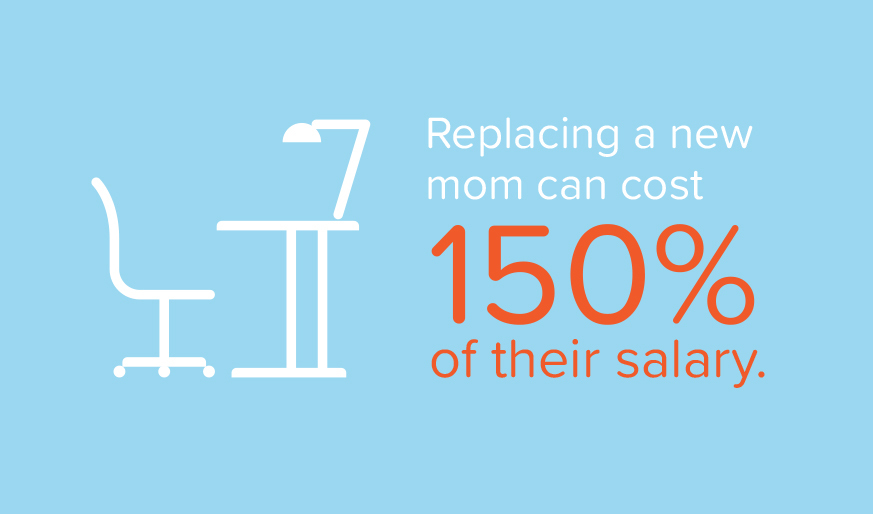
Returning to work after having a baby is a difficult transition for any mother, but for the 2 in 5 new moms who struggle with postpartum depression (PPD), it’s exponentially harder. PPD can be as debilitating as any major depressive disorder and can significantly impact a woman’s ability, and desire, to work.
Employers play a bigger role in preventing and treating PPD than they might realize—and they pay a greater cost for ignoring it.
Leaving PPD to chance can result in expensive consequences. Healthcare costs are almost twice as high for women with PPD compared to those without—and visits to the emergency room are four times more likely. And, if PPD leaves a woman unable to return to work at all, replacing her position can cost up to 150% of her salary.
The good news is, according to the Center for Workplace Mental Health, employers can have a significant impact on preventing PPD and mitigating its damage.
Experts stress that social support is key to preventing PPD, and many recommend that employers provide various kinds of support, including some form of prenatal education and/or new-parent groups. Doing so sends a positive message to new and expectant parents, and it’s an important, tangible way to buffer the risks of PPD.
Many employers in the Midwest achieve this goal by partnering with Amma Parenting. Amma’s expert teachers bring new-parent classes and support groups directly to their workforce, providing new moms with the information, skills, and social support they need to understand PPD, prevent it, and pursue treatment if needed.
Employers who understand how to support new moms will help protect the health of their employees, their employees’ families, and their bottom line.